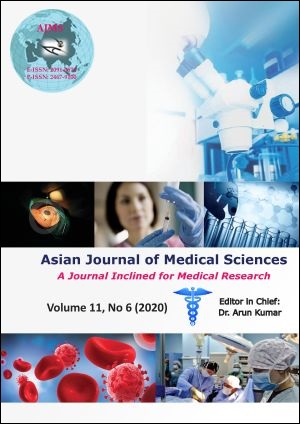The Use of ACE inhibitor/ARB in SARS-CoV-2 Patients: A Comprehensive Narrative Review
Keywords:
COVID-19, SARS-CoV-2, ACE2, ACE inhibitors, Angiotensin IIAbstract
The three most common comorbidities that are associated with increased mortality in COVID-19 patients are Hypertension, Diabetes, and Cardiovascular disease, Angiotensin-converting enzyme (ACE) inhibitors and Angiotensin II receptor blockers (ARB) are the drugs most commonly prescribed for the management of these diseases. Recent experimental study in animals and humans have found that SARS-CoV-2 uses ACE2 as the receptors for entry. Moreover, in an animal study, the use of ACE inhibitor/ARB increases the level of ACE2 expression that can lead to increased SARS-CoV-2 infectivity. On the other side, some evidences suggest that the ACE2 receptor is not necessary for SARS-CoV-2 entry into the cell and suggested that there is a cofactor that play part. Experimental studies in humans also showed that there is no association between ACE inhibitor/ARB with SARS-CoV-2 infectivity and mortality. In conclusion, there is still insufficient data to stop the use of inhibitor/ARB in SARS-CoV-2 patients. Therefore, we suggested that in line with the recommendations from ESC and AHA/ACC, the use of these two drugs in SARS-CoV-2 patients with cardiovascular comorbidity should still be continued.
Downloads
Downloads
Published
How to Cite
Issue
Section
License
Authors who publish with this journal agree to the following terms:
- The journal holds copyright and publishes the work under a Creative Commons CC-BY-NC license that permits use, distribution and reprduction in any medium, provided the original work is properly cited and is not used for commercial purposes. The journal should be recognised as the original publisher of this work.
- Authors are able to enter into separate, additional contractual arrangements for the non-exclusive distribution of the journal's published version of the work (e.g., post it to an institutional repository or publish it in a book), with an acknowledgement of its initial publication in this journal.
- Authors are permitted and encouraged to post their work online (e.g., in institutional repositories or on their website) prior to and during the submission process, as it can lead to productive exchanges, as well as earlier and greater citation of published work (See The Effect of Open Access).




